Following The Film Stage’s collective top 50 films of 2023, as part of our year-end coverage, our contributors are sharing their personal top 10 lists.
Many of the most memorable moments of my life have revolved around cinema. (Let’s not debate whether that is a good thing.) And 2023 was no exception. There was a twentieth-anniversary screening of the mesmerizing Mulholland Drive at Buffalo’s North Park Theatre featuring a performance from the remarkable Rebekah Del Rio. That was a biggie, but many of my most indelible 2023 cinema memories include my children. In July, my wife and our two kiddos had a rare group cinema outing (generally, the four of us have little interest in seeing the same thing) to Barbie on its opening day, and I have rarely seen my then-eight-year-old daughter more genuinely excited to dance the night away. A few weeks earlier my son was similarly pumped for Indiana Jones and the Dial of Destiny—his first (and only) chance to see a new Indy vehicle on the big screen—and he and I both enjoyed it for what it was. We rented a theater at the Dipson Flix Stadium 10 in Buffalo for my daughter’s birthday, and watching a group of energetic nin-year-olds belt out “Under the Sea” during The Little Mermaid was downright heartwarming. And in October, I took my daughter and a friend to see Taylor Swift: The Eras Tour, and for them, it was the next best thing to seeing her live. (Full disclosure: I had to fight the urge to place Eras in my top fifteen. Yes, I was that captivated. Please don’t tell me to calm down.)
When it comes to solo cinema-going, there was Miyazaki—specifically, seeing The Boy and the Heron at September’s Toronto International Film Festival. I was spellbound by the master’s return to filmmaking, and seeing it at the splendid Roy Thomson Hall made the experience even more special.
As you will see, Heron has prominent placement on my list of top 2023 films. The group of fifteen below could just as easily have included The Holdovers, Rye Lane, Barbie, American Fiction, The Iron Claw, Napoleon, Dream Scenario, Origin, R.M.N., Spider-Man: Across the Spider-Verse, Taylor Swift: The Eras Tour, Godland, The Wonderful World of Henry Sugar, Monster, Master Gardener, Mission Impossible: Dead Reckoning — Part One, The Taste of Things, Skinamarink, BlackBerry, Beau Is Afraid, Passages, Showing Up, Infinity Pool, Asteroid City, The Royal Hotel, Maestro, and several others. (Best restoration was Farewell My Concubine. And the most memorable first-time watches for me were David Byrne’s True Stories and Jerzy Skolimowski’s Deep End.)
Honorable mentions: The Zone of Interest, Anatomy of a Fall, The Killer, How to Blow Up a Pipeline, Past Lives
10. Emily (Frances O’Connor)
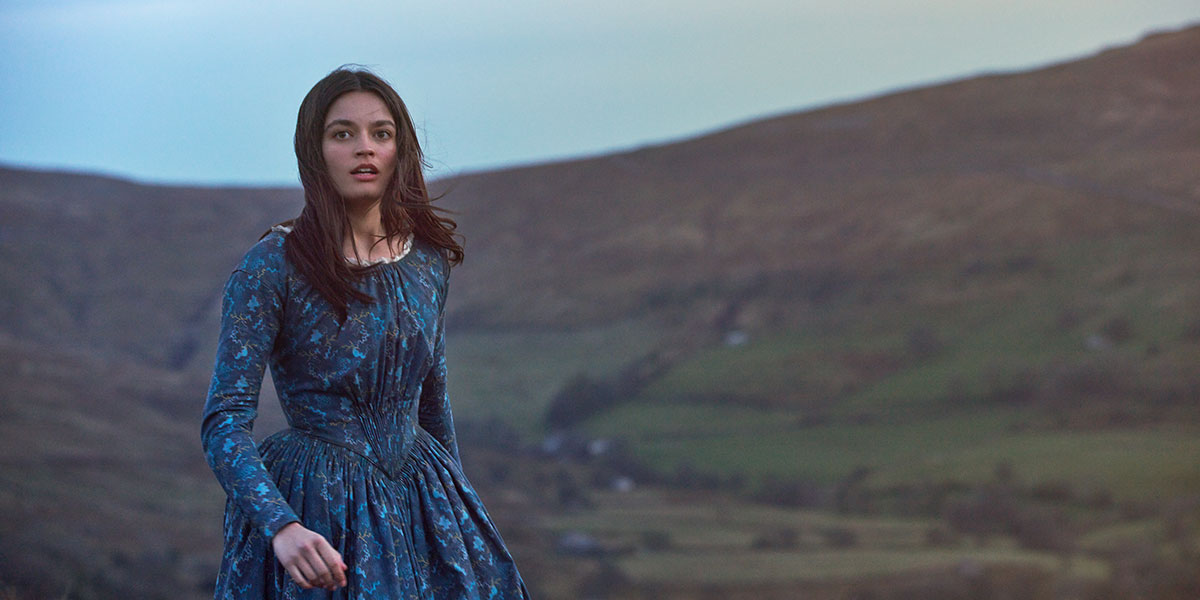
Emily, the directorial debut for Mansfield Park and A.I.: Artificial Intelligence star Frances O’Connor, was one of the more remarkably assured first efforts in recent memory. Shot with breathtaking beauty and acted with extraordinary emotion and grace, this exploration of the life and development of Emily Brontë is a profoundly enveloping experience. While it is unclear how much of the film is historically accurate and how much is conjecture, O’Connor’s account of the author of Wuthering Heights feels respectful and well-reasoned. With a heartbreaking performance from star Emma Mackey and a gorgeous score by Abel Korzeniowski, not to mention O’Connor’s ingenious script, Emily deserved much more attention upon release.
9. Oppenheimer (Christopher Nolan)
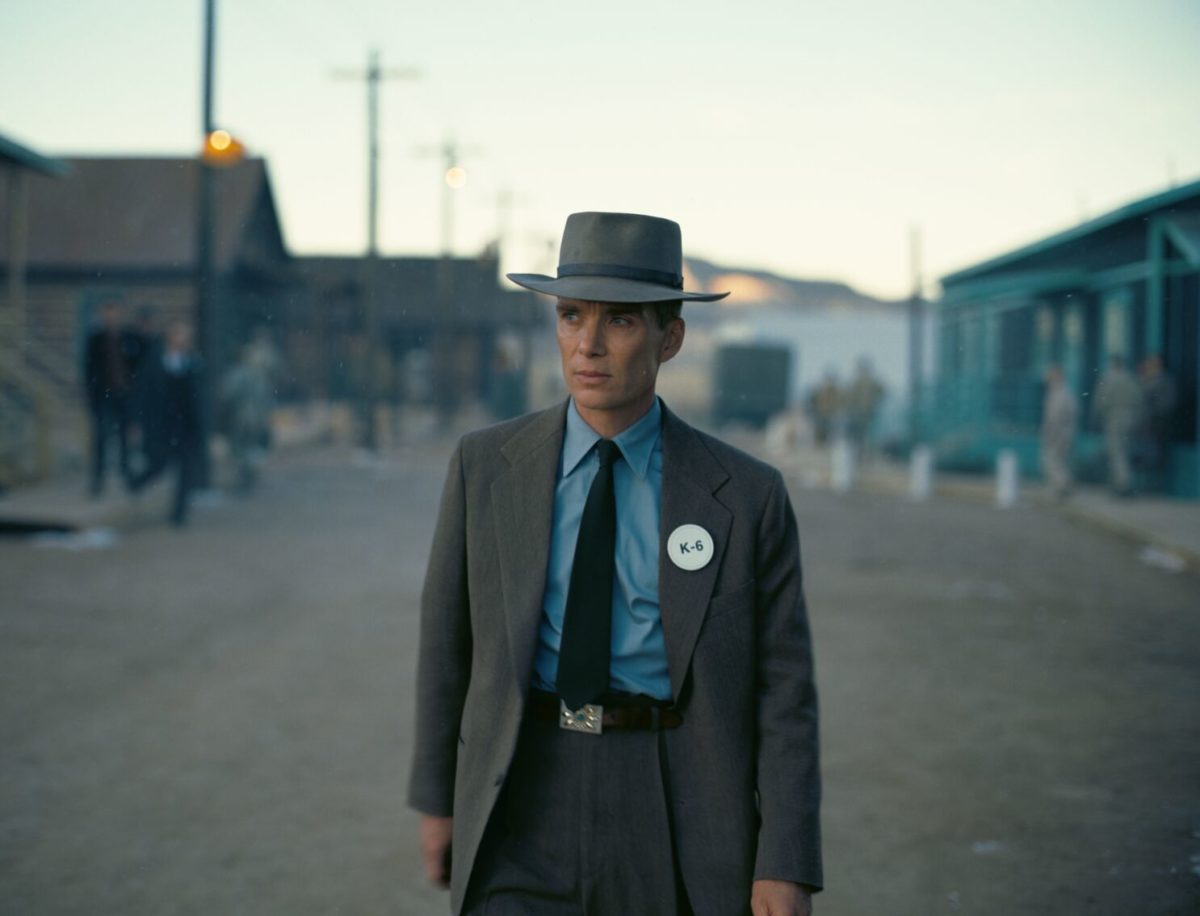
I am finding it difficult to conjure a fresh take on Christopher Nolan’s Robert Oppenheimer biopic, perhaps a result of reading so, so much about the film since its release in July. Thinking about it now, though, what impresses me most with Oppenheimer—beyond the performances of Cillian Murphy and company, the time-hopping screenplay, and its overall technical mastery—is that it is truly a film of ideas. Big, complex, sometimes ugly ideas. In a blockbuster summer release? Damn.
8. Priscilla (Sofia Coppola)
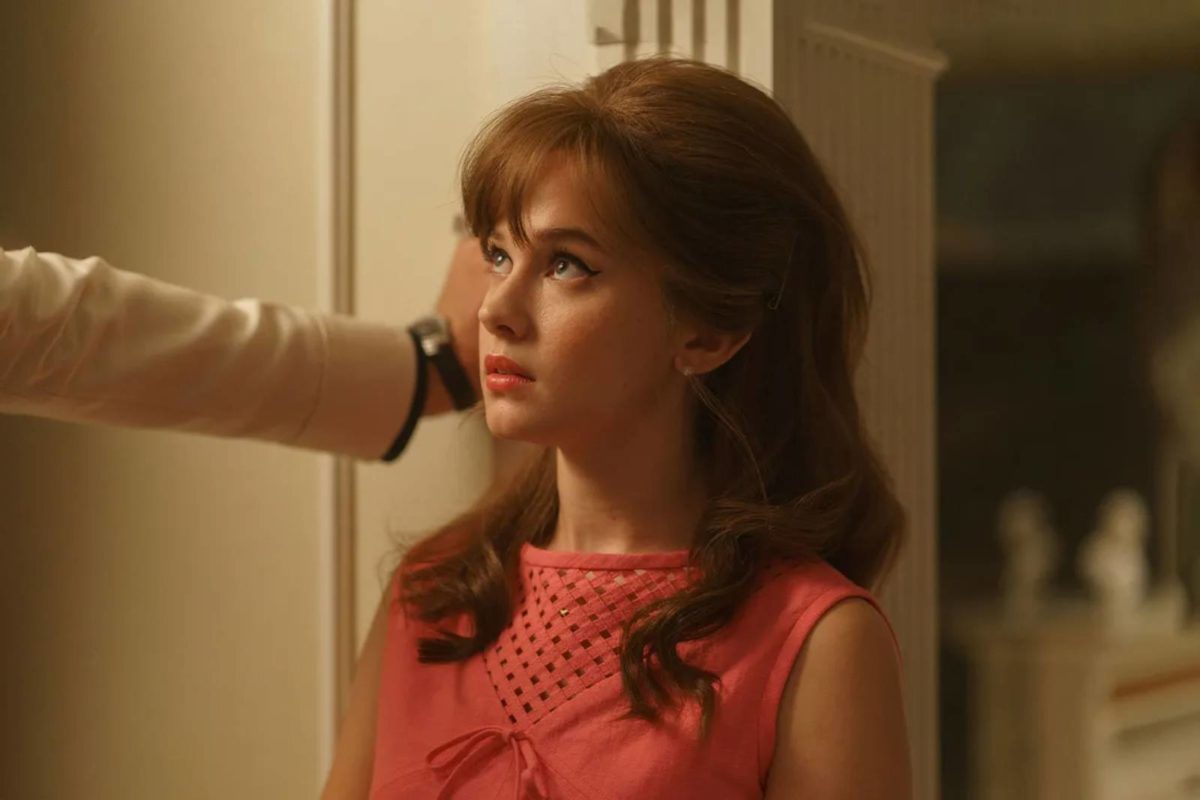
Priscilla Presley has long seemed like a celebrity unlikely to ever truly escape the shadow of the man she was once married to; that’s likely to be the case when your spouse was Elvis Presley. Sofia Coppola’’s Priscilla, then, is a bold and imaginative attempt at putting this (one-time) household name in the spotlight on her own—an attempt that more than succeeds. It is clear what drew Coppola to Priscilla’s story; she is in many ways the prototypical Coppola heroine. (I adored this recent New York Times headline: “Sofia Coppola and All the Sad Girls.”) By the time Dolly Parton’s “I Will Always Love You” soars on the soundtrack, Priscilla Presley (played with wounded grace by the splendid Callie Spaeny) feels like an individual whose real life—her life without Elvis—is just about to begin.
7. Ferrari (Michael Mann)
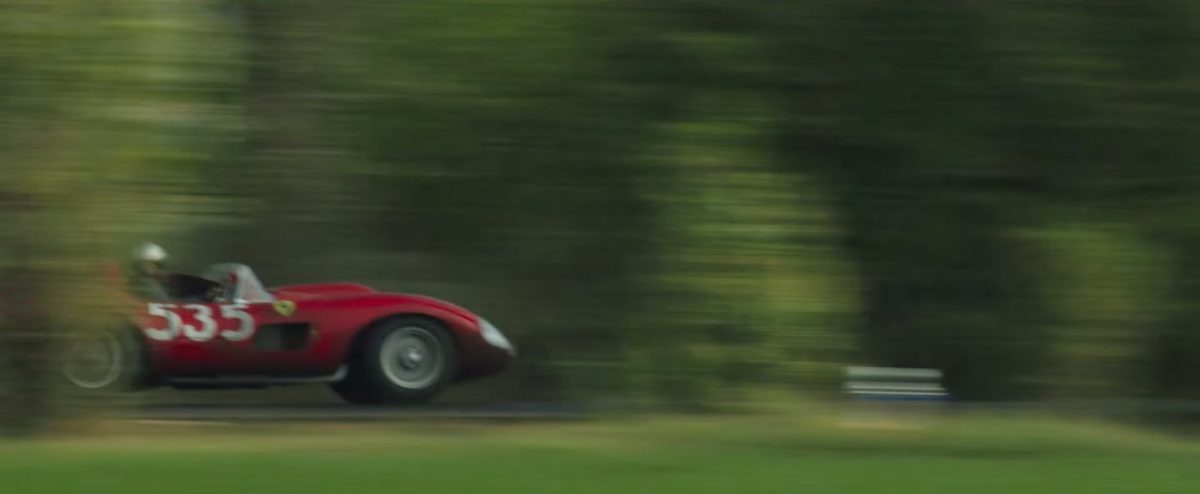
Enzo Ferrari is the most haunted Michael Mann protagonist since Manhunter’s Will Graham. And he is just as obsessive as William Peterson’s FBI agent. Fittingly, Mann’s quest to bring Ferrari to the screen was similarly consuming. Adam Driver gives a fierce performance as Ferrari, a driver-turned-mogul who makes a daily stop at his son’s resting place, juggles a fiery wife (Penélope Cruz, never better) and a mistress and child, and attempts to keep his struggling automaker afloat. The coming Mille Miglia race could change everything, and in typical Mann fashion, the quest overtakes all elements of Ferrari’s life. Then… shocking events occur, and Ferrari moves from biopic to tragedy. This is a stunning film, and one of Mann’s late-period greats.
6. All of Us Strangers (Andrew Haigh)
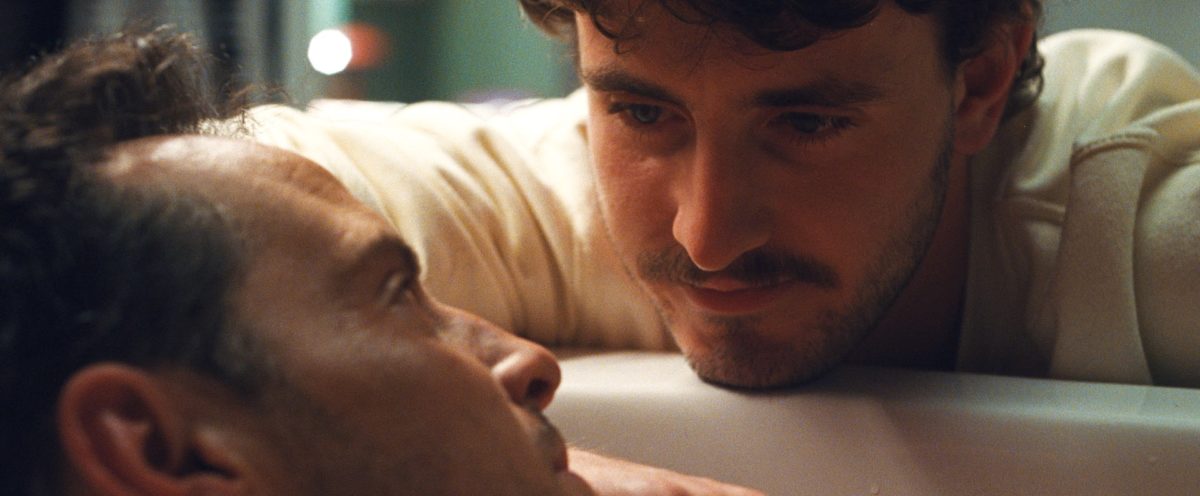
The year’s most astonishing ghost story, All of Us Strangers is a massively affecting drama about the apparitions of our youth finding us in adulthood. Andrew Scott’s Adam lost his parents years before but remains a man gripped with torment. His deceased parents—played by the stupendous Claire Foy and Jamie Bell—reappear in his life, seemingly offering a chance for closure. Meanwhile, a neighbor sweetly played by Paul Mescal offers an opportunity for love. Nothing is quite as it seems, though, and Haigh stages it all with graceful, lump-in-your-throat terror. (I’ll never hear Blur’s “Death of a Party” again without thinking of Scott’s heart-wrenching night at the club.) In its final moments, All of Us Strangers somehow becomes even greater, moving from deep anguish to real transcendence.
5. Afire (Christian Petzold)
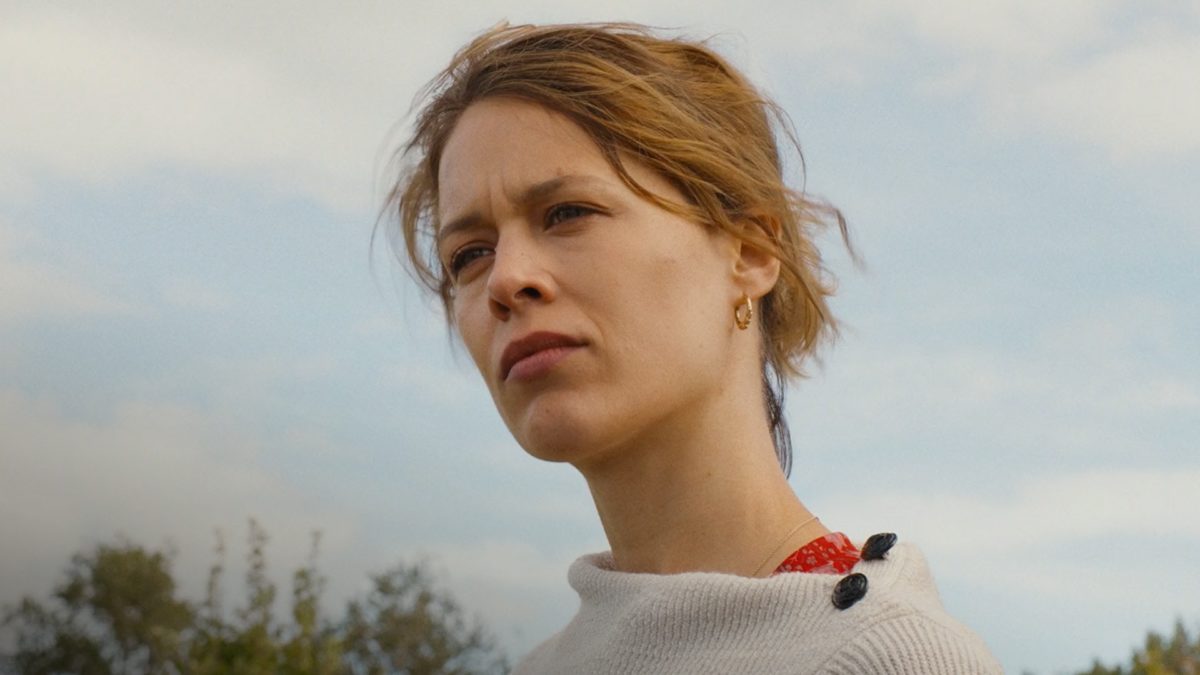
“I find that as soon as there’s a plot, a narrative, there are also certain laws,” says Christian Petzold in a 2003 interview featured in Christian Petzold: Interviews from the University Press of Mississippi; I covered the book here. “And films are all about either laws or criminals who break laws. You can apply that to plot. There must be a law, and you have to rub up against this law. That’s what it’s about.” In his latest film, Afire, Petzold once again wants to defy the logic of all plot laws. Friendships are complicated, manuscripts aren’t very good, and love? It ain’t easy to connect, especially when our protagonist, Leon (played with note-perfect annoyance by Thomas Schubert), is mostly a jerk. (Alternate title: The Worst Person in the World.) Afire never moves down the expected paths, right up to its tragic conclusion. It is a slippery, disorienting thing. And when Afire’s end credits run, it is impossible not to be moved.
4. May December (Todd Haynes)
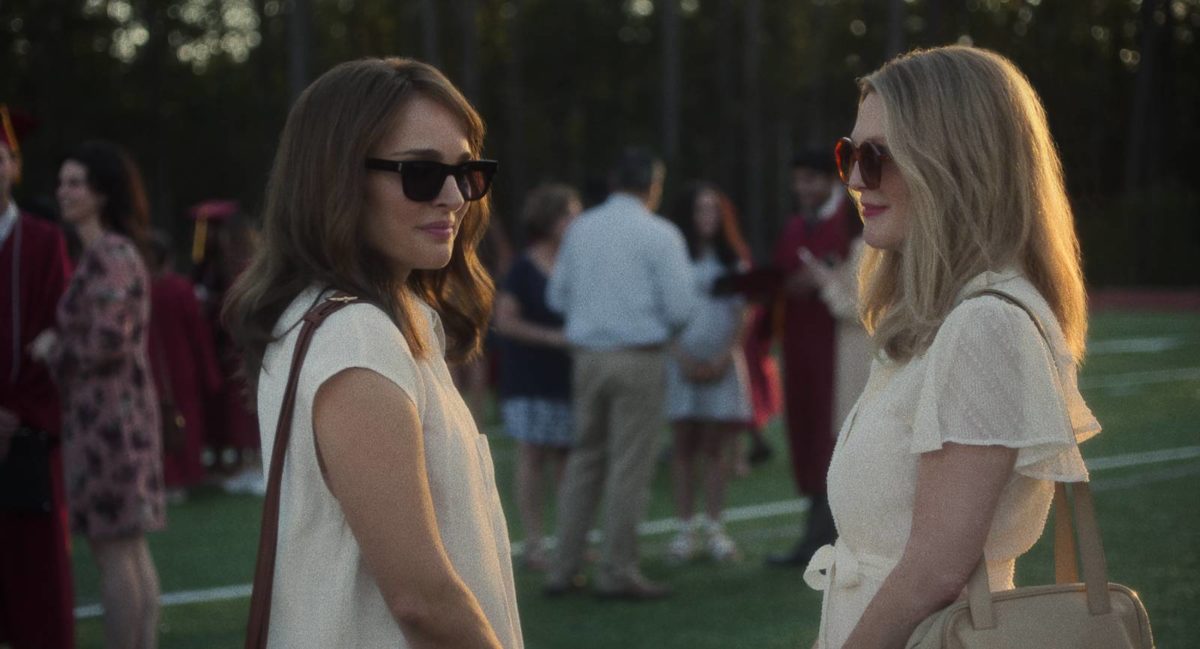
The brilliant, provocative May December is a Todd Haynes masterpiece. Another Todd Haynes masterpiece, that is, following Superstar: The Karen Carpenter Story, Poison, Safe, Velvet Goldmine, Far from Heaven… well, every Haynes’ effort, really. He is arguably the most consistent director on the planet, and May December is his sharpest, most go-for-the-jugular film since Carol. It is also Haynes’ funniest film yet, albeit one with performances (from Charles Melton, especially) that also earn tears. Its final scene is the film’s greatest joke of all. Sublime performances (Melton, Natalie Portman, Julianne Moore), a devilishly smart script (from Samy Burch), an undeniably juicy hook—May December is a gem that improves with every viewing.
3. The Boy and the Heron (Hayao Miyazaki)

The opportunity to watch the long-awaited return of director/animator Hayao Miyazaki was, for me, the clear highlight of TIFF23. Months later, I’m still buzzing over The Boy and the Heron. Imaginative, moving, and boasting some of the most memorable moments of any recent animated film, it is undoubtedly one of Miyazaki’s best. It is also wonderfully strange, often unsettling, and delightfully dark. It would be wonderful to see more from Miyazaki, but if this is it, The Boy and the Heron is a suitable ending. The fact that it debuted as the number one film at the American box office upon release is positively sublime.
2. Killers of the Flower Moon (Martin Scorsese)
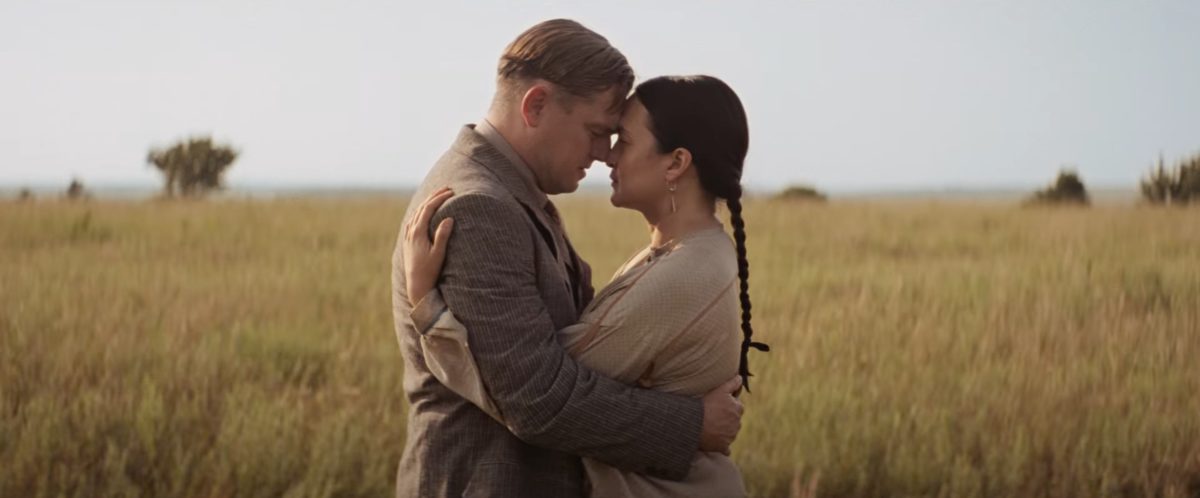
A few weeks after the release of Scorsese’s harrowing, appropriately exhausting adaptation of David Grann’s book, a friend asked me where I would rank the film on the Marty filmography. (We all have a love/hate relationship with “rankings,” don’t we?) The question threw me, because there is no simple answer. It almost does not seem fair to judge Killers of the Flower Moon against, well, any films, let alone Scorsese entries. So, let’s just say that Killers of the Moon is another tremendous Martin Scorsese picture. And, more than that, it is a statement of regret that needed to be made. We should not take its ambition for granted.
1. Fallen Leaves (Aki Kaurismäki)
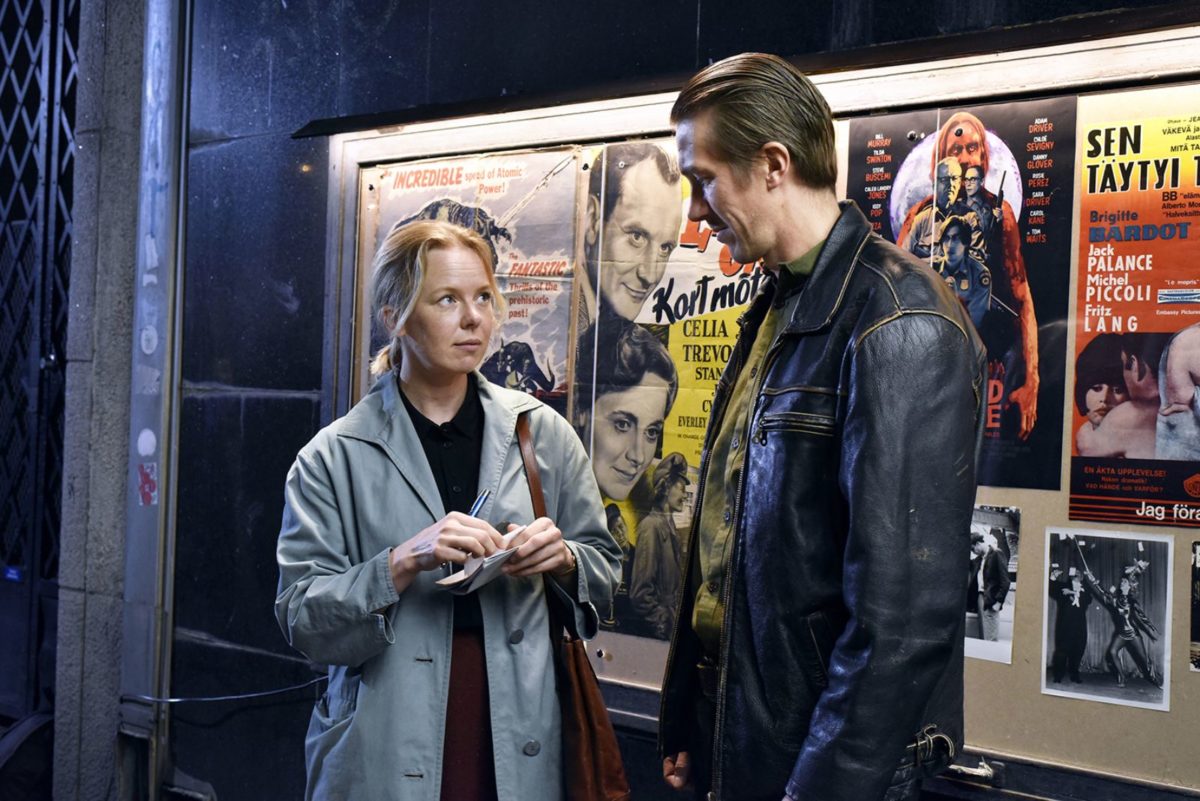
Throughout Aki Kaurismäki’s Fallen Leaves, the audience hears radio news updates on the Ukraine War. That is a devastatingly large-scale conflict, of course, and it adds an air of despair to the small-scale conflicts at the heart of Fallen Leaves. Like Kaurismäki’s last two films, Le Havre and The Other Side of Hope, Leaves alternates between moments of great humor and gentle melancholy. The performances of Alma Pöysti as Ansa and Jussi Vatanen as Holappa are a perfect match for this mix of emotions. Ansa is a lonely figure whose jobs come and go suddenly. Holappa is a laborer with a drinking problem, and little to cling to outside of his friend, Huotari (the delightfully deadpan Janne Hyytiäinen). Ansa and Holappa meet, come close to connection, lose each other, come close to connection again, lose each other again, and so on. Their lives are full of heartbreak and modest joys. Indeed, it is the little moments that make Fallen Leaves so memorable and satisfying. Ansa and a supermarket coworker walking away, hand in hand, after being fired. Holappa leaving a pile of cigarettes on the ground outside the cinema as he waits in vain for Ansa. The adorable dog who becomes her companion. The karaoke sequence. And that final stretch, an ending that feels both magical and refreshingly ordinary. Not every filmmaker can pull that off that mix. Kaurismäki can, and that makes Fallen Leaves a film to be treasured. To me, it was the finest film of 2023.
